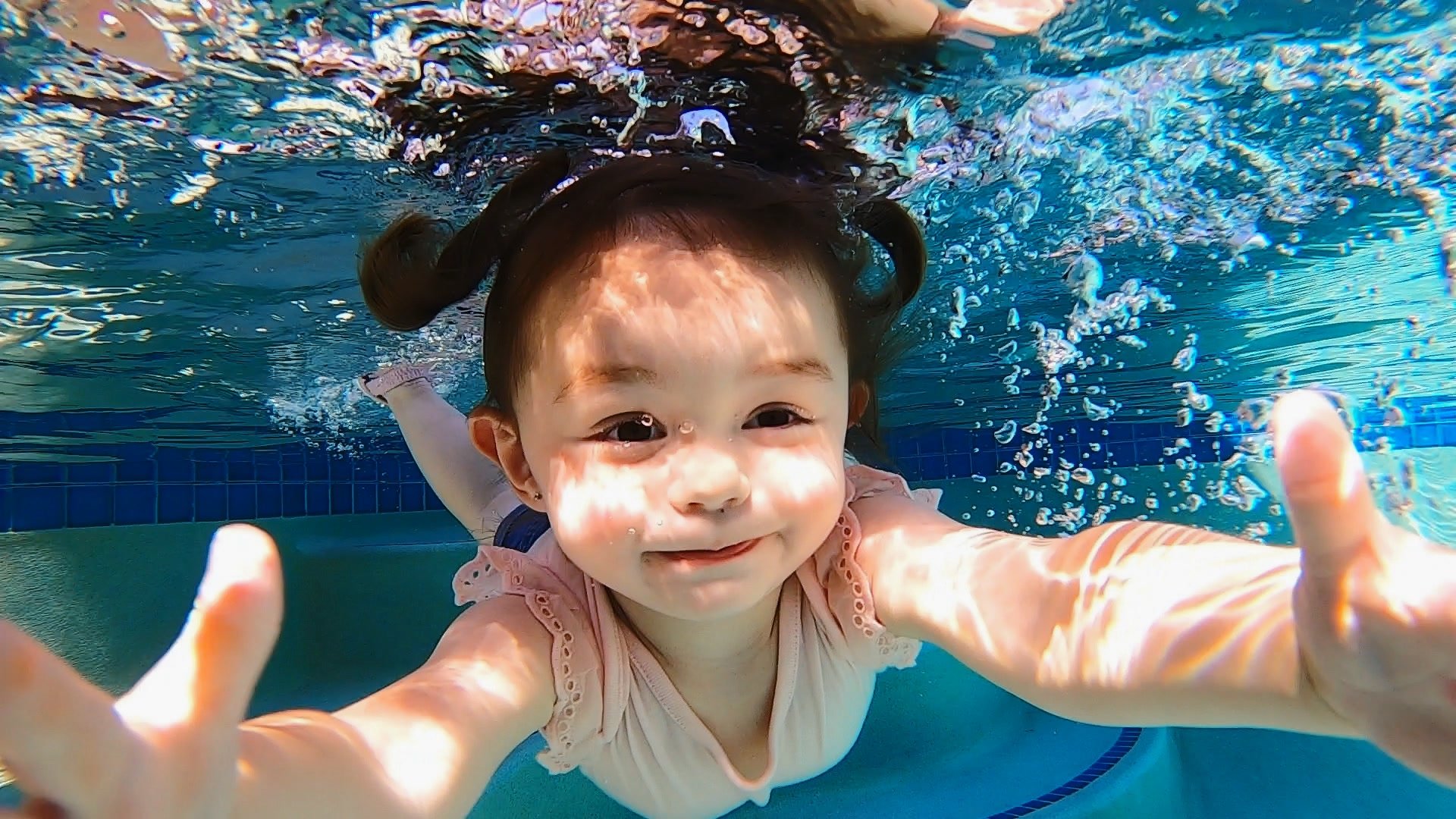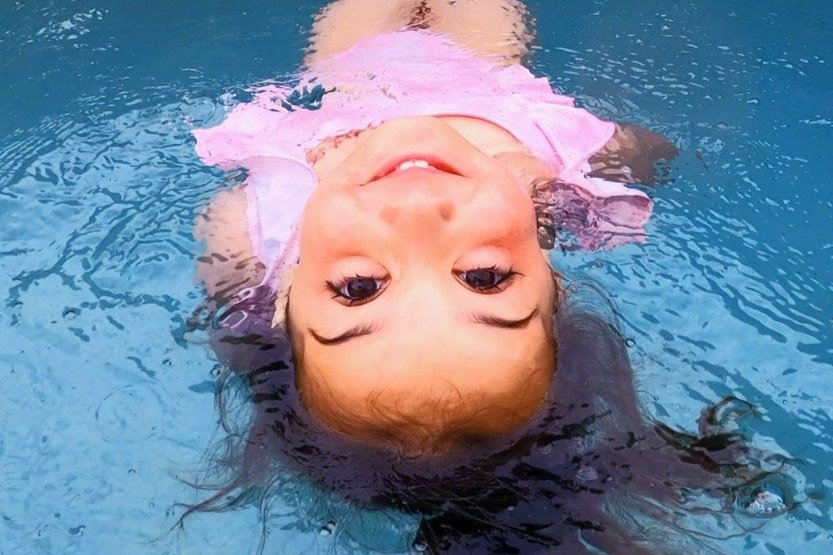
About Lessons
Infant Swimming Resource (ISR) offers self-rescue®/drowning prevention aquatic skills to infants and toddlers ages 6 months to 6 years of age.
We are fundamentally different from traditional swim lessons.
The sole purpose of our lessons is survival! Drowning is the leading cause of death and hospitalization in the State of California and Nationwide for children age 1 - 4.
Because of the impact swim skills have on drowning prevention, drowning prevention classes have been declared an essential public health service by the Secretary of California Health and Human Services and the State Department of Public Health.
Self-rescue® swim lessons are
tailored for children
aged 6 months to 6+ years,
with one-on-one instruction exclusively.
Lessons are every day
(5days a week), Monday - Friday,
each student has their own dedicated lesson time.
Each lesson is a maximum
of 10 minutes per day,
for an 8-week session.

Keely Heinzen
Elverta, CA
Private - Indoor - Heated Pool
January - May
September - November
Pool Locations
Looking for a HOST POOL
in Roseville or Rocklin, CA
Private - Outdoor - Heated Pool
July - September
Granite Bay
Private - Outdoor - Heated Pool
May - September
Todd Heinzen
Elverta, CA
Private - Indoor - Heated Pool
January - November
April - October
Marissa Janney
Roseville, CA
Private - Outdoor - Heated - Salt Pool
April - November
SESSIONS/SCHEDULES
While our schedules and pool locations may undergo slight variations from session to session or year to year, our typical 8-week session schedules generally adhere to the following structure with enrollment opening approximately 7-8 weeks prior to the session start date.
In order to receive detailed enrollment information for our lesson sessions,
it is essential to be on our
interest list. This list ensures prompt email notifications of session availability, schedules, and enrollment procedures.
*We respect your privacy.
Unsubscribe at any time.
Skill Sets and Programs
What your child will learn with ISR Self-Rescue depends on their age and developmental readiness, but in all cases, at minimum, your child will learn to roll onto their back to float, rest, and breathe and to maintain this position until help arrives.
Rollback to Float
Infants to Early Walkers
The rollback to float program teaches your baby to independently turn themselves onto their back if ever face down in the water to safely breathe, rest, and float on their back until help arrives.
Swim-Rollback-Float
Early Walkers
With swim-rollback-float lessons, your child can swim underwater until they need to breathe, roll to their back to rest, breathe, and float until rescued by an adult.
Swim-Float-Swim
Solid Walkers
The swim-float-swim program teaches your child to swim underwater until they need to breathe, roll to their back for a few breaths until rested, then swim starting the sequence again until they reach the pool steps, side of the pool, or the shoreline.
Skill Continuation
Your child's initial skill set marks just the beginning, not the conclusion. Similar to learning a second language; ongoing practice through maintenance and refresher lessons is essential. Should your child finish their first lesson session as a floater, once their motor skills/coordination develops into walking, their next skill advancement will be to learn the Swim-Float-Swim sequence.
Upon completion of your child's session, parents are invited into the pool to join their instructor and student. Here, you'll learn how to effectively practice and swim alongside your newly skilled child.
Maintenance
After completing their initial ISR Self-Rescue skillset, maintenance lessons help students to maintain their skills and confidence throughout the year and can indicate readiness for skill advancement. They are single-day lessons that should be scheduled at intervals recommended by the instructor, ranging from a few times per week to once a month.
Refreshers
After completing their ISR Self-Rescue skillset, refresher lessons are suggested every four to six months and are scheduled for two-three weeks, five days per week. As children grow, their skills will need to be adjusted to their growth, new height and weight. Refreshers are highly recommended to refine their skills as they’ve most likely hit developmental milestones since the last time they’ve seen us.
Please keep in mind that your child’s safety always takes priority and we will adjust lessons according to our safety protocols.
A Family’s ISR Journey
A raw, real, and inspiring testimonial. Granger and Amber Smith's son, River, lost his life to drowning in 2019. Three years later, their new baby, Maverick, completed ISR Self-Rescue Lessons.
ISR Lessons in Action
Drowning is the leading cause of accidental death for children under the age of 5 in the United States. Nationwide, it ranks second only to vehicle accidents. On average, 11 children drown every day. "With ISR training, just because a child wanders to the pool alone doesn't mean he has to die there, and that's our mission," says JoAnn Barnett, Infant Swimming Resource president and CEO.
ISR in the News
Check out recent news stories about ISR Self-Rescue.
Baby boy saved himself from drowning thanks to swimming lessons. - WPBF 25, West Palm Beach, FL
Drowning is the leading cause of accidental death in children ages 1 to 4 and swim instructors want to make sure you have your child prepared to be near the water. - WBIR 10, Knoxville, TN
In 2018, Olympic skier Bode Miller and his wife Morgan lost their little girl Emmy in a tragic drowning accident. Natalie Morales visits them at their Southern California home, where their younger children are being taught skills the Millers believe could have saved their daughter’s life. - TODAY
Florida parents take steps to prevent drowning deaths, including ISR Self-Rescue lessons and layers of protection. - NBC 2, Cape Coral, FL

“ISR’s unique results are achieved through fully customized, safe and effective one-on-one lessons with only your child and the instructor in the water.”
— JoAnn Barnett, ISR SMI, President & CEO of Infant Swimming Resource









